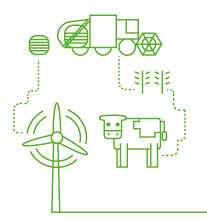With many farmers returning home from the break and land prices booming throughout much of the WA Wheatbelt, the inevitable question will come from a client or two, “how much tax will I pay if I happen to sell the farm?” A fair question, but with the number of variations in landholding structures, it’s a question that should be asked several years before listing a property.
 There are some very generous concessions available to primary producers under the small business CGT concessions that allow the taxable capital gain held through certain structures to be reduced or removed entirely. You may be able to roll the net capital gain into your superannuation or a replacement asset, should you be looking to farm elsewhere, or even simply disregard, should you be of a certain age or held the asset for 15 years.
There are some very generous concessions available to primary producers under the small business CGT concessions that allow the taxable capital gain held through certain structures to be reduced or removed entirely. You may be able to roll the net capital gain into your superannuation or a replacement asset, should you be looking to farm elsewhere, or even simply disregard, should you be of a certain age or held the asset for 15 years.
However, the increasing size of farms and higher land value are starting to present a challenge to pass the initial tests to qualify. Whilst many turnover tests recently have increased to allow businesses to claim accelerated depreciation and instant asset write-offs, the thresholds for claiming small business CGT exemptions have remained the same.
To be able to access these concessions the individual involved in the farming business must pass one of the following tests:
- the entity is a small business entity - you will be a small business entity if you are an individual, partnership, company, or trust that is carrying on a business and has less than $2m aggregated turnover or less than $6m of net assets;
- you satisfy the maximum net asset value test of $6m or;
- you are a partner in a partnership that is a small business entity, and the CGT asset is an asset of the partnership.
Whilst the $2m turnover test is easy to calculate, the $6m maximum asset test on the other hand has many catches.
For example, a personal use asset such as a unit in Perth that is not rented out, will not count towards the $6m. However, there may be assets owned by other individuals or entities that are attached to your $6m test, for instance, if you or an affiliate are a controller of a separate trust or company.
 If you are able to pass one of the above tests the land being sold must then be an active asset. Put plainly, it must be used in your business to produce income. Farmland will generally qualify but if the farmland has been leased for more than half the time owned, then it may not be considered active. For land held in trusts and companies, there are further tests to pass to qualify as an active asset.
If you are able to pass one of the above tests the land being sold must then be an active asset. Put plainly, it must be used in your business to produce income. Farmland will generally qualify but if the farmland has been leased for more than half the time owned, then it may not be considered active. For land held in trusts and companies, there are further tests to pass to qualify as an active asset.
If the above tests are passed, then you and your adviser can choose the best concessions in order to minimise or remove the capital gain and achieve the best tax outcome for you and your business.
As always, it is best to consult with your accountant well before you look to sell to ensure that your structure will meet the tests.
HOW CAN RSM HELP?
If you have any questions regarding your business, get in touch with your local RSM expert.
